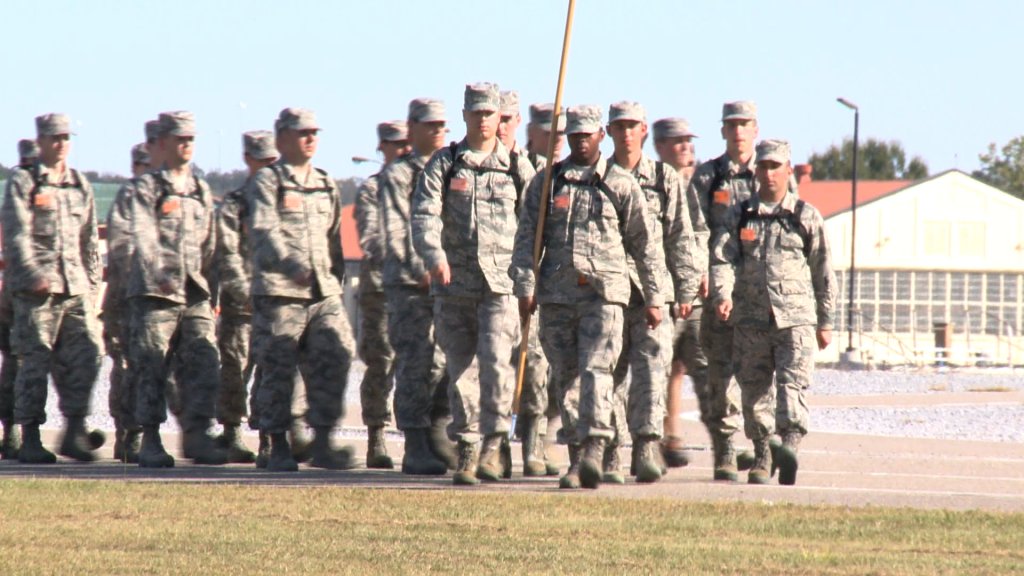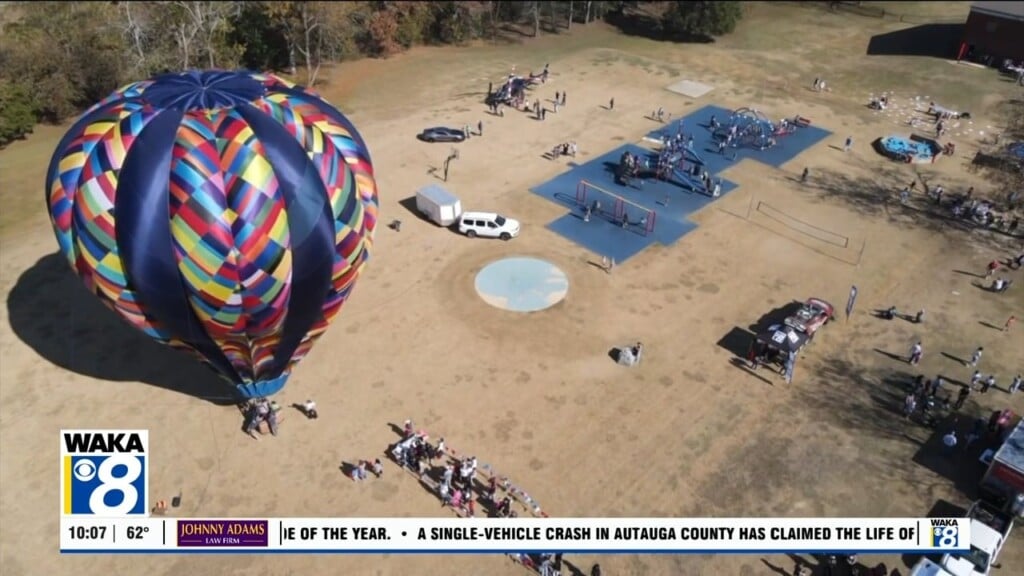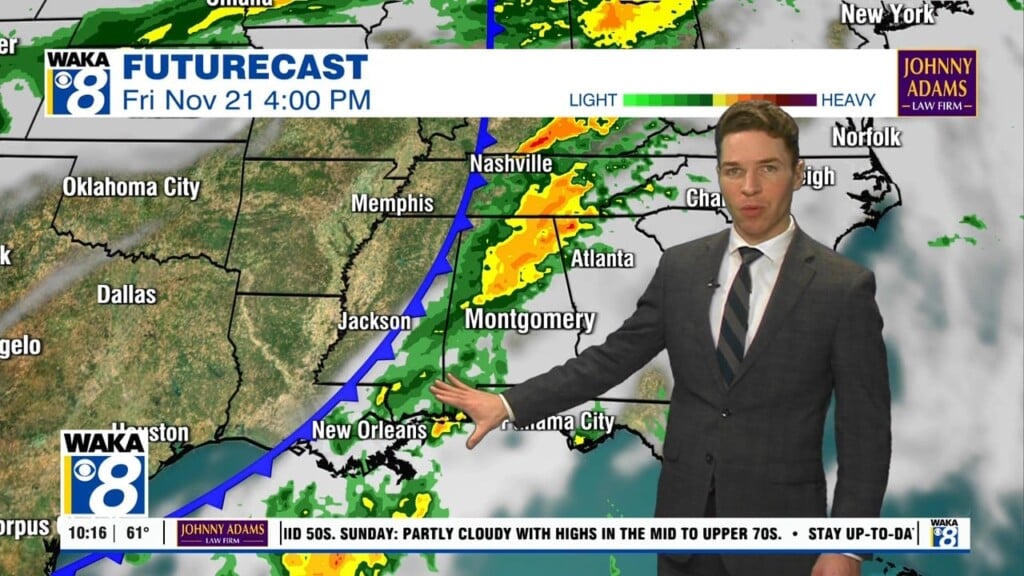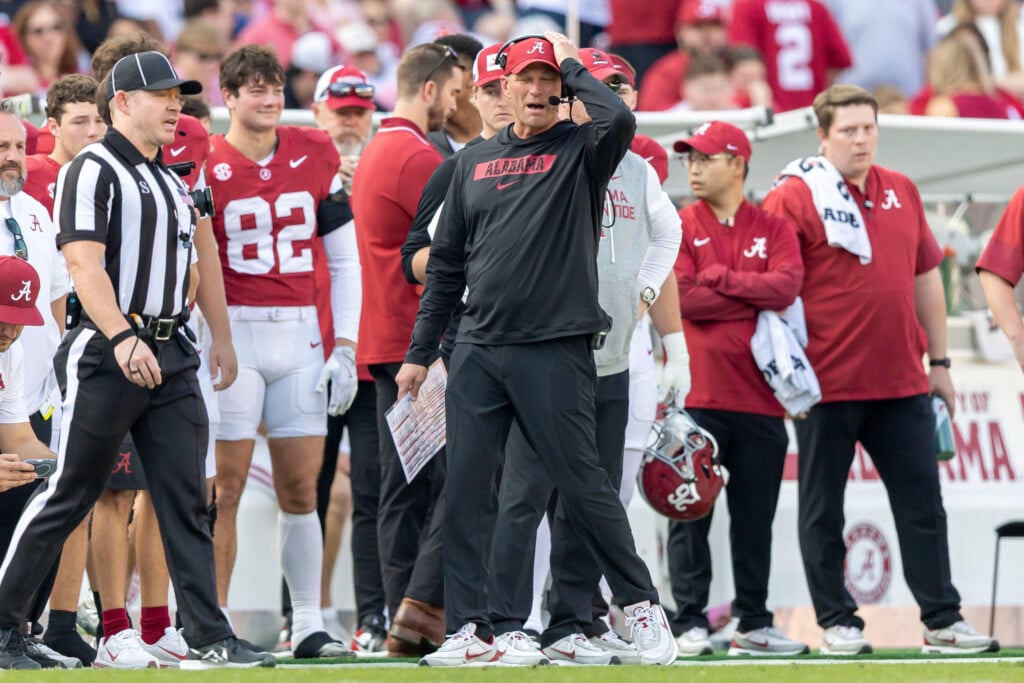Combat Ready: Behind The Gates Of Maxwell Air Force Base

There’s a lot that goes on behind the gates of Maxwell Air Force Base.
It’s not all focused on flying planes.
Reporter Josh Ninke got a first hand look at how the base trains officers for up close and personal combat.
It’s a rigorous training program that almost nine thousand men and women go through every year.
They let me tag along for some of the training, and let me tell you, I was surprised to see what all they learn.
Big C-130 cargo planes circle the river region every day.
You might think that’s all that goes on at the installation. But you’d be wrong.
Aspiring officers take the first steps to their new command here.
And a big part of that is learning how to defend themselves.
“There are definitely situations where they are going to need small arms training coming in handy. I’ve actually had officers coming in from over seas who’ve told about situations where they’ve had to deploy their weapons. They thought there was a one in a million chance but they actually had to use the training that we teach here,” said Staff Sgt. Timothy Morrison.
Staff Sgt. Morrison takes cadets and shows them how to use their new side arm, a beretta M9 pistol.
For some, this is the first time they’ve ever picked up a pistol.
You might notice that no one is taking any notes, but that’s on purpose.
“Unfortunately you see a lot of times when they’re focused on writing down what you say they’re not applying it, not thinking about it. So we try to be really repetitive especially with safety and the fundamentals of firing the weapon,” said Morrison.
After several hours of breaking down the weapon, putting it back together again, and drilling safety into the cadets, they head to the second busiest firing range in the air force.
Some trainees can wait for over a year before getting the call for officer training school.
Cadet Steven Jackson served for three years at Dobbins Air Force base as an enlisted airman…
“For the most part I was with the base honor guard. For two years I did over 250 funerals. Coming here, it’s a real eye opener,” said Jackson.
This is the first time that Jackson has ever fired a pistol, but he did pretty well in the practice round.
After going through about 50 rounds at different distances, each cadet has a chance to qualify to carry their weapons with them wherever they go.
Not all of the training involves firearms. Some of it involves using your body as a weapon.
“The base line fighting style is Brazilian jujitsu, so it’s a lot of ground fighting and the concept is that not necessarily for them to get a submission but separate from the enemy in hopes of retrieving their weapon if they lost it for some reason,” said the flight commander.
Before teaching the class, he showed me a couple moves he teaches the cadets.
The first was a choke hold.
I was worried that my opponent was too big for me to take down, but after walking me through the move, he tapped out.
That’s just a small part of the hand to hand combat.
The cadets line up and drill over and over again, committing the moves to memory.
It would be easy to think that airmen would never need these moves, but the instructor says it’s about more than just personal defense.
“Another thing that’s a little of an intangible is giving them confidence and courage and having an aggressive mindset. So we see trainees show up here day one very timid and then after a few days and hours of fighting they start to have a lot more confidence when they go to the mat they’re not afraid to actually take someone head on, even someone that’s twice their size.”
This was another first for Cadet Jackson.
“Never taken any karate classes, any taikwando, anything like that but i think this is a great experience a great learning tool, and I actually kind of like it.”
This is just the first part of learning all the moves. Cadets eventually spar and put into practice all of these new moves they’re learning.
Oh, and if you’re wondering how Jackson did in his shooting qualifications…
“I got expert,” said Jackson.
And just so you know, expert is the top marksmanship level that Cadet Jackson could achieve.
After graduation, the new officers don’t stick around the river region. They get assigned to posts all over the country and all over the world.






